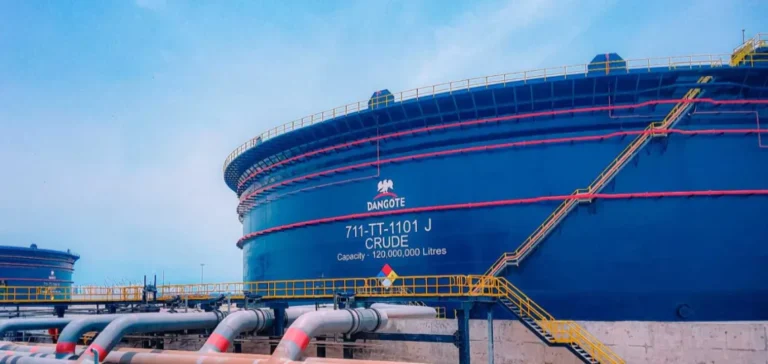Nigeria’s oil and gas union, the Petroleum and Natural Gas Senior Staff Association of Nigeria (PENGASSAN), has cut off natural gas supply to the Dangote refinery, one of the continent’s largest refining facilities. The move follows the mass termination of Nigerian workers, who were reportedly replaced by foreign nationals.
In a directive dated September 26, PENGASSAN instructed the immediate closure of crude and gas supply valves and the suspension of all loading operations bound for the refinery. The union accused Dangote Petroleum Refinery of using “propaganda” rather than engaging in discussions over the dismissal of unionised staff. PENGASSAN General Secretary Lumumba Okugbawa ordered all union chapters in oil companies to enforce the shutdown without delay.
Strategic disruption amid growing pressure
The action comes as the $20bn refinery faces mounting supply issues, exacerbated by adverse foreign exchange conditions. Dangote has announced that, starting September 28, it will stop selling petrol in naira, further straining fuel prices and the national currency. The company has not officially responded to the union directive.
The delivery halt could disrupt a significant portion of the refinery’s operations, which depend on steady crude and gas inflows to maintain production lines. PENGASSAN stated that the dismissal of Nigerian workers was a direct violation of labour rights and criticised the increasing reliance on foreign labour.
Potential impact on domestic distribution
Located near Lagos, the refinery had been ramping up output to meet domestic fuel demand. A supply interruption could destabilise Nigeria’s petroleum logistics chain, as the country remains reliant on refined fuel imports despite local capacity expansion. The union has instructed its representatives to monitor the directive’s enforcement and report regularly.
The dispute highlights growing tensions between industrial operators and labour groups in a sector where economic and social stakes remain closely linked. Nigeria continues to depend on refined product imports, even as facilities like Dangote ramp up production.






















